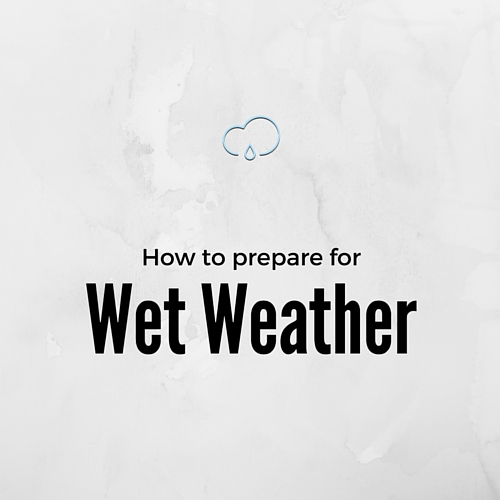Many events are planned in Spring and Summer because there is the assumption that the weather will be fine for a large scale outdoor event. However, every now and then Mother Nature interferes. What can you do when wet weather threatens your events?
Every December since the 1970s Perth has been holding an enormous Christmas pageant through the streets of Perth. More than 300,000 people come every year to watch the brilliantly decorated floats rolls through the streets while dancers and musicians perform in unison. It’s considered a right of passage for kids growing up in Western Australia.
In 2015, for the first time in 44 years, the event was cancelled due to a bad weather forecast.
A decision this major would not have been made lightly.
As it would happen, my daughters’ school also had an end of year function organised for the same time. The forecast was for Perth’s coldest day in fifty years, with rain, strong winds and the possibility of a thunderstorm in the afternoon*.
As soon as word got out that the pageant had been cancelled, emails and texts began circulating to find out if we were going to cancel as well.
There is a major logistical difference between 300,000 people lining the streets of a city which is otherwise closed, and thousands of performers in motorised carts with delicate trimmings are exposed to the elements, and a school function for 400 people.
If wedding planners insist on the bride needing a wet weather plan, then school fundraisers need one too. How can you plan for the possibility of wet weather? Events such as these are planned months in advance, and you usually have only three or four days warning of a bad forecast. This is your window.
Wet weather contingency plan:
- If your event is primarily outdoors, do you have access to a covered or indoor space large enough for all your visitors? Make sure that organisers have the key, and that people know who is physically carrying it.
- Is your indoor space big enough to hold the entire event, or is it just for shelter in case of a freak thunderstorm or downpour?
- If your plan involves using classrooms, the staffroom or library as venues and you will need to move furniture – take photographs of the layout of the room before moving anything, so everything can be put back exactly as it was. This is particularly important if the people setting up are different to the people packing away.
- If the event is primarily for fundraising purposes – what do you think will be your most profitable stalls? Bouncy castles, outdoor cinemas and other amusements would not be allowed to operate in certain weather, so if they are affected by wet weather will you need to cancel/postpone?
- Do you need a phone tree or a central website/Facebook page in the case of an unfavourable forecast to get information out (to say if the event will be cancelled/go ahead). Leave a recorded message on the school phone so people can call a single point to get the latest information.
- At the time of organising the event, can you also plan a reschedule date in the event of poor weather for the original date. Make sure the alternative date doesn’t clash with any major school/community events, and check with all your suppliers that they would be able to change dates as well (you will need to make the decision to postpone a week or so in advance).
- How will rain at the time of the event starting affect your overall attendance? Can the starting time be delayed if a large number do not arrive at the advertised time?
- High winds are probably more likely than all-day rain – how will windy conditions affect your outdoor fete/event?
- Prepare a wet weather run sheet – which details the order of events in case of rain (depending on the event, this might be different to a sunny weather run sheet).
- If you have stall holders, musicians, a bouncy castle, outdoor movie screen, outdoor BBQ, food trucks etc you need to communicate in advance about what they will do in the event of bad weather, as many of these cannot safely continue in poor weather. Make sure you have a clear understanding of their cancellation policies.
- Sometimes signs posted throughout the school in the days leading up to the event saying ‘the event will go ahead regardless of weather’ is enough to appease concerned people. Most Aussies aren’t afraid of a bit of rain, and kids love a freak rain shower in the middle of a school event.
- If you’re prepared to go ahead in a bit of wet weather, then consider any hazards caused by slippery surfaces, wet grass or mud.
*For the record, there was an initial downpour during set-up, but then the sun came out and our event was a huge success.
What are your best tips for preparing a wet weather contingency plan?




